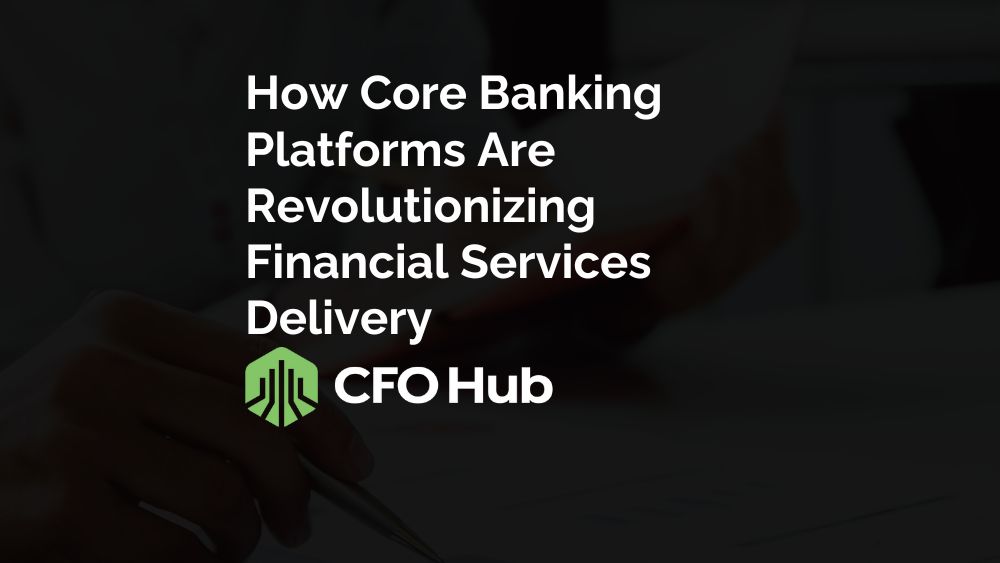How Core Banking Platforms Are Revolutionizing Financial Services Delivery
In the rapidly evolving landscape of financial services, traditional banks are realizing the need to adapt and innovate at a faster pace. One key element driving this transformation is the shift towards utilizing advanced technology solutions such as core banking platforms. While many financial institutions have relied on legacy IT systems from the 80s and 90s, these monolithic structures are proving to be inflexible and slow to evolve. The time has come for banks to prioritize modernizing their core banking systems by embracing next-generation solutions that offer speed, agility, and scalability.
The Evolution of Core Banking Platforms in Financial Services
The emergence of Core Banking Platforms represents a significant leap forward for banks looking to navigate the complexities of the modern financial landscape. These platforms serve as the backbone of a bank, enabling them to operate with greater efficiency and responsiveness to customer needs. While migrating from traditional core banking systems can be a daunting task due to the complexity and cost involved, the benefits of transitioning to a more flexible and dynamic backend infrastructure are undeniable.
Modular Architecture: Transforming Core Banking Systems
One of the fundamental reasons why Core Banking Platforms are revolutionizing financial services delivery is their modular architecture. Unlike traditional core banking systems built on monolithic models, Core Banking Platforms leverage containerized microservices architecture, open-source languages, and modern coding standards. This approach enables financial institutions to rapidly create and deploy new products and services with enhanced scalability and configurability, ultimately providing a more seamless customer experience.
Real-Time Processing and Enhanced Customer Experience
Moreover, Core Banking Platforms facilitate a shift from batch processing to real-time processing, allowing for instant data availability and decision-making. This real-time capability enhances the customer experience by eliminating delays in information processing and enabling automatic updates of modular components. By leveraging advanced analytics and personalized offers, financial institutions can better leverage their data assets to provide tailored solutions to their customers, driving greater engagement and loyalty.
Security and Cost Considerations in Core Banking Platforms
The benefits of Core Banking Platforms extend beyond technical enhancements to encompass security and cost considerations. These platforms embrace a “zero trust” security model, moving away from perimeter security towards stronger encryption, multi-factor authentication, and data tokenization. This enhanced security infrastructure ensures comprehensive protection of sensitive information and reduces the risk of cybersecurity threats.
In addition to security enhancements, Core Banking Platforms offer a more cost-effective pricing model compared to traditional core banking systems. Financial institutions can leverage cloud-native functionality and automatic updates, reducing maintenance costs in the long run. The pay-as-you-go pricing model of Core Banking Platforms allows organizations to align their expenses with actual usage, leading to greater cost efficiency and flexibility.
The Necessity of Core Banking Platforms in the Digital Age
As the banking industry continues to undergo technological transformation, Core Banking Platforms have become a necessity for financial institutions looking to stay competitive and meet evolving customer demands. By embracing the modularity, scalability, and efficiency of these platforms, banks can revolutionize financial services delivery and position themselves for success in the digital age.
In conclusion, the adoption of Core Banking Platforms is reshaping the landscape of financial services delivery by empowering banks to operate with greater speed, flexibility, and customer-centricity. By migrating from traditional core banking systems to next-generation solutions, financial institutions can harness the power of advanced technology to drive innovation, improve operational efficiency, and enhance the overall customer experience. Core Banking Platforms represent a pivotal evolution in the banking industry, enabling organizations to thrive in an era of rapid digital transformation.
Mark is an accounting and finance professional with over a decade of experience in public accounting and consulting. As both an accountant and entrepreneur, he is passionate about helping clients strategically organize and grow their businesses to reach their goals.
Visit Mark's Expert Hub to learn more about his experience and read more of his editorial content

